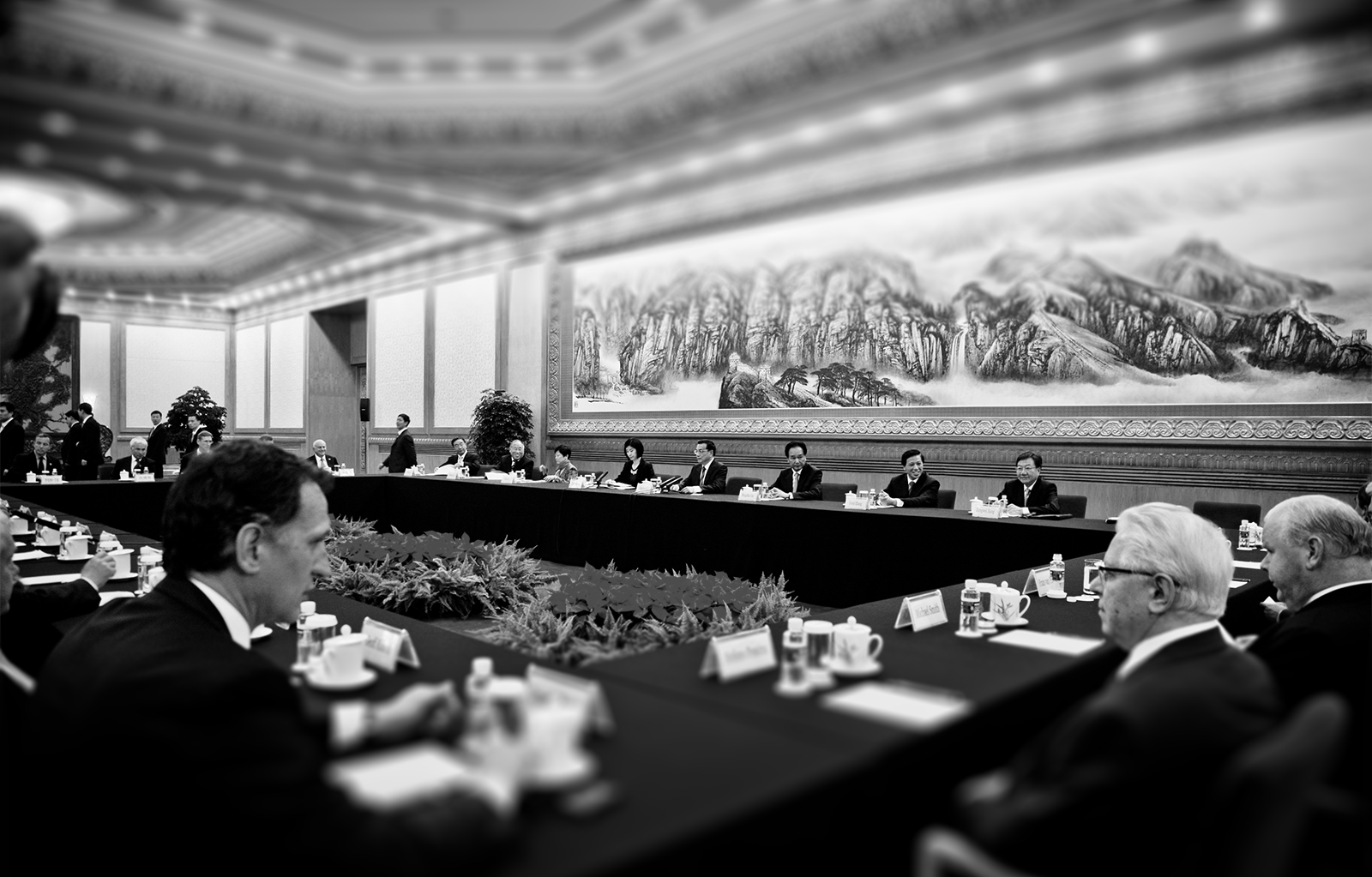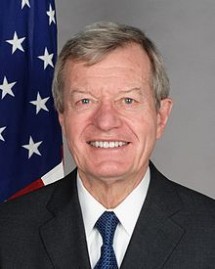- Over 35 years as U.S. Senator (D-MT) (1978-2013)
- 7 years as Chairman, Senate Finance Committee (2007-2014)
- U.S. Ambassador to the People’s Republic of China (2014-2017)
- Three decades of experience in the US Senate serving on the committees of Finance, Taxation, Deficit Reduction, Agriculture, Nutrition and Forestry, Environment and Public Works
- A seasoned voice on issues important to your business and audiences around the globe
- Over 35 years as U.S. Senator (D-MT) (1978-2013)
- 7 years as Chairman, Senate Finance Committee (2007-2014)
- U.S. Ambassador to the People’s Republic of China (2014-2017)
- Three decades of experience in the US Senate serving on the committees of Finance, Taxation, Deficit Reduction, Agriculture, Nutrition and Forestry, Environment and Public Works
- A seasoned voice on issues important to your business and audiences around the globe
On January 7, 2014 U.S. President Barack Obama nominated Max Sieben Baucus to be Ambassador of the United States of America to the Peoples Republic of China. He served as Ambassador from February 21, 2014 until January 19, 2017. Ambassador Baucus formerly served as the senior United States Senator from Montana. He served in the U.S. Senate from 1978 to 2014 and was Montana’s longest-serving U.S. Senator as well as the third-longest tenure among those serving in the U.S. Senate.
While in the Senate, Ambassador Baucus was Chairman and Ranking Member of the powerful Senate Committee on Finance. While Chairman, he was the chief architect of the Affordable Health Care Act (ACA) which was signed by President Barack Obama into law March 23, 2009. The ACA expanded health care coverage and reformed reimbursement.
Ambassador Baucus has extensive experience in international trade. As Chairman of the Senate Committee on Finance, he led the passage and enactment of the Free Trade Agreements with 11 countries: Australia, Bahrain, Jordan, Chile, Colombia, Morocco, Oman, Panama, Peru, Singapore and South Korea. He also was deeply involved in orchestrating the congressional approval of permanent normal trade relations with China in 2000 and in facilitating China’s entrance into the World Trade Organization in 2001.
While serving on the Senate Agriculture Committee, he led in securing reauthorization of numerous farm bills. As a member of the Committee on Environment and Public Works, he guided many highway bills and other infrastructure legislation to passage as well as leading the passage of The Clean Air Act of 1990. Ambassador Baucus also served as Vice Chairman of the Senate Joint Committee on Taxation and was selected to be a member of the Senate Joint Select Committee on Deficit Reduction (Super Committee) following the financial crisis of 2008.
Before his election to the U.S. Senate, Ambassador Baucus represented Montana in the U.S. House of Representatives from 1975 to 1978 and represented Missoula, Montana in the Montana House of Representatives from 1973 to 1974.
Ambassador Baucus earned a bachelor’s and law degree from Stanford University. He is married to Melodee Hanes and they have three children and two adorable granddaughters.






